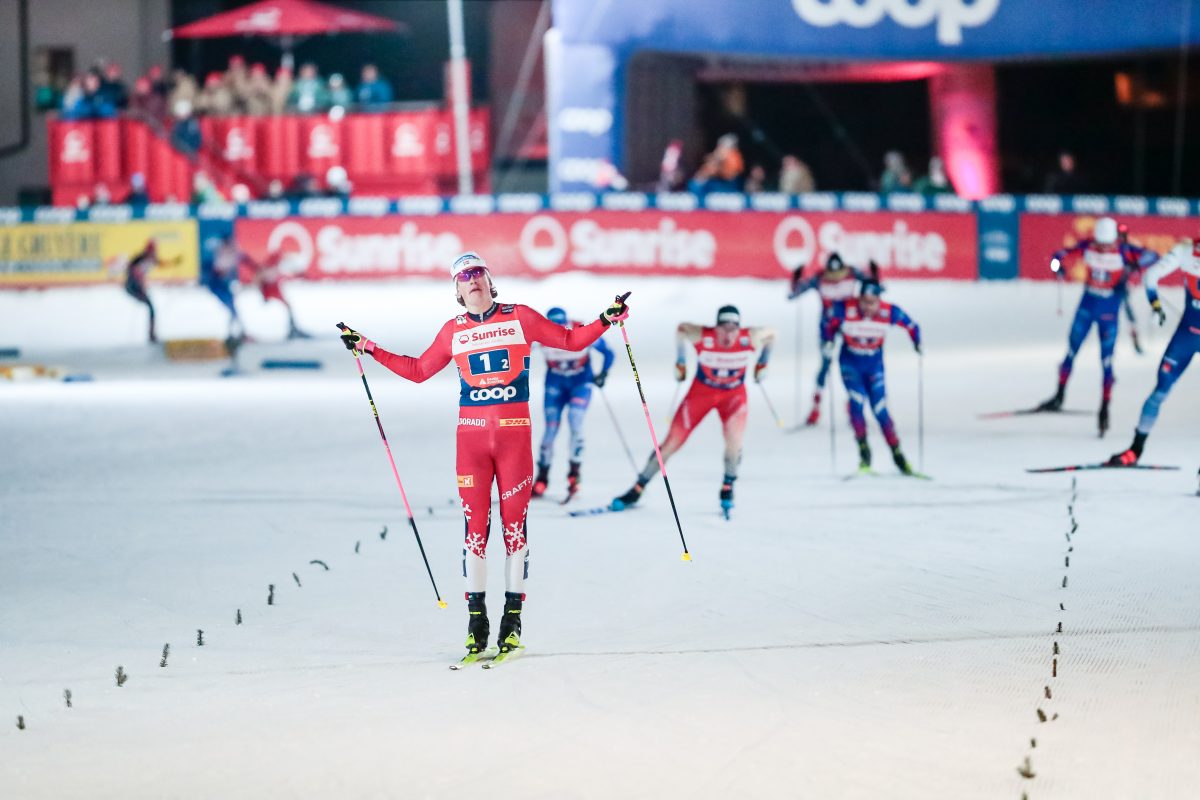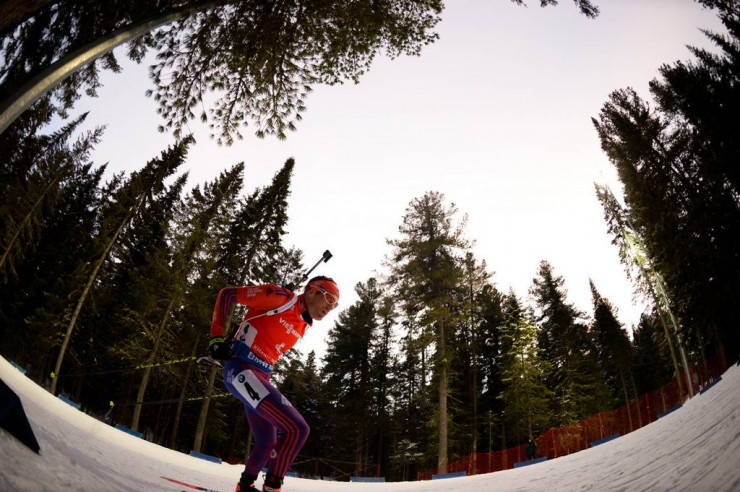
Cruise control is anathema to US Biathlon veteran Tim Burke. He’s part-workhorse, part-cerebral technician. There’s the heart rate aspect of simply going all out, and then there’s the controlled breathing, the nanosecond impulse of sighting, triggering and nailing a quarter-sized target.
Two seasons ago, in 2014/2015, Burke finished the season ranked 34th on the International Biathlon Union (IBU) World Cup. Twelve months later, that overall ranking would be more than halved: Burke, 34, concluded his 2015/2016 season ranked 15th overall, only two spots behind age-defying Norwegian star, Ole Einar Bjørndalen (age 42). And to cap it all, Burke was FasterSkier’s North American Biathlete of the Year.
Recently, on Oct. 15, Burke placed second to US Biathlon teammate Lowell Bailey at the team’s rollerski trials (Burke and Bailey had both already prequalified for the World Cup). The next day, Burke placed first.
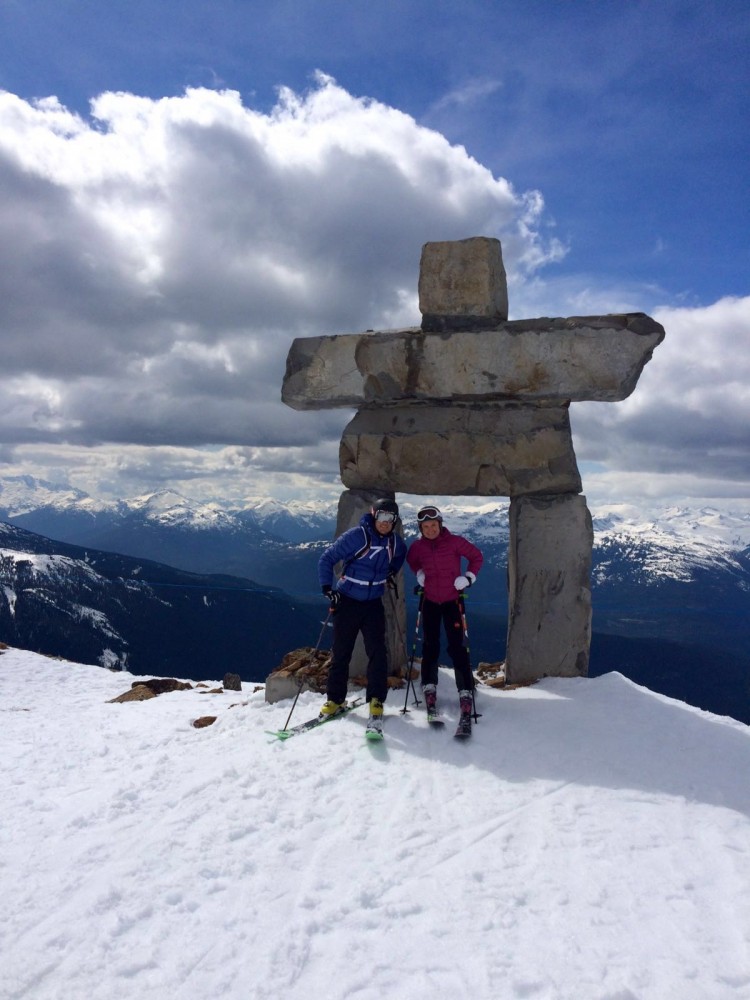
Despite these successes, Burke says he’s continually looking for that edge coming into the current season.
“Every year I definitely try and make some changes,” Burke explained on the phone. “One thing that I have realized throughout my career, for me personally, that if I just continue to do the same plan, it doesn’t necessarily mean that my body will adapt to it the same way every year. I feel like it is really important to keep your body guessing and mix things up to throw new challenges at yourself if you want to improve.”
Improvement, in Burke’s case, involves scrutinizing past training logs and ensuring that the input correlates to positive output.
“One of the big changes I have made this year, I really want to make sure that all the strength training that I am doing carries over to skiing,” he said of his willingness to ensure all his training benefits fast skiing and precise shooting. “We all spend a lot of time in the weight room doing different things, and it’s always hard to know if those gains will really transfer over to skiing. So this year I have gone through my old strength program and actually added back in a lot more specific strength.”
That specific strength may seem counterintuitive in biathlon, a sport where athletes skate ski exclusively. “I’ve always done a lot of double poling,” Burke explained. “But this year I added a lot more double poling also in my interval sessions. And I know it’s something a lot of people probably don’t think that a biathlete would do, but it definitely helps me a lot for my skating as well.”
Bottom line, Burke asks this about all of his training: am I getting faster? “That is one of the great cross-country skiing questions,” Burke said. “I have heard so many different opinions on that, it is one of those things that is really challenging to quantify … are you getting better on skis? At the end of the day, that is what counts for us.”
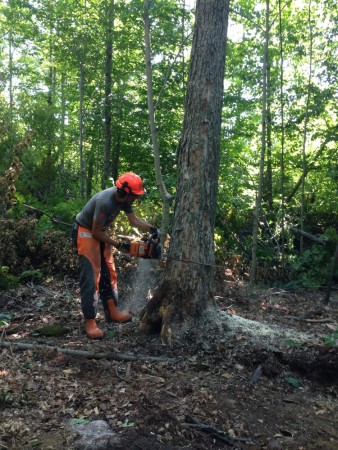
Although a large percentage of a biathlete’s time on course is spent skiing, poor shooting can crush an otherwise stellar ski performance. While Burke fine tunes the skiing, he’s also focused time on becoming a more efficient and proficient shooter.
“One thing that I have done this year is I started working a lot closer with Matt Emmons, who is one of the best position shooters in the world,” Burke said of Emmons, a renowned U.S. sport shooter. “He had multiple Olympic medals, world records, he’s still competing. He’s someone I’ve worked closely with this year and was fortunate enough to do a training camp with him in Ruhpolding this summer. Just to kind of pick his brain, and that has been it has helped me.”
Emmons’s work with Burke has involved micro-adjustments.
“It is very minute technical details, but I was just really shocked working with him,” Burke explained. “The level of knowledge he has is unlike anything I have ever experienced. He understands shooting positions unlike anyone I have ever worked with. So it was really great to have one of the best shooters in the world sit there and watch me shoot. And it just gave me some small technical points about positions that make a big difference … He can watch me shoot and tell me if he thinks I should add more pressure in my prone sling for example, like I should shorten that up . And then the big aspect for him as well is the mental side. He is someone it is such a huge part of his sport — to be able to share some of his secrets like how he stays focused in competition, there is a lot of crossover there.”
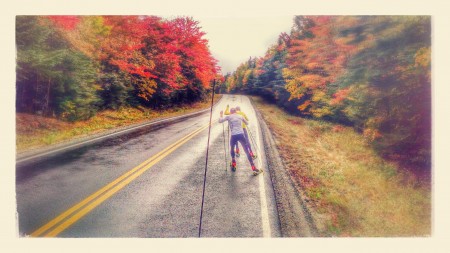
Over the years, Burke has battled minor injuries and illness due to the wear and tear of elite sport. Coming into this season, Burke said his body feels sharp.
“I am very happy in how things have gone so far this year,” he said. “Knock on wood, I’ve been healthy all year and no injuries. I have been able to really train and do exactly everything the way I want to. And this year I also feel very in control right now. I have been feeling good when I expect to feel good and tired when I expect to feel tired so that it is nice to feel like I am in charge right now.”
The IBU World Cup begins Nov. 25 in Beitostølen, Norway.
***
We asked Burke to give our ’17 Questions for 2017′ a go. Here are his responses:
1. Biggest change in your life in the last five or so months since the ski season ended?
Andrea and I started building a house here in Lake Placid. It has been fun but definitely a little more time consuming than I expected!
2. Biggest change in your training?
I totally restructured my strength training this year. I liked my old program but I still need to throw new things at my body to improve.
3. Major areas of improvement you’ve seen so far?
I feel that with the improvements I have made through my strength training, that my V2 is better than ever this year.
4. Whom you’ve been working closest with this offseason (coaches or training partners)?
I have continued to work directly with my personal coach Per Nilsson. I train the most sessions with Lowell Bailey but this year I have also trained quite a bit with the entire team that trains in Lake Placid.
5. Best trip in the last five months (and why)?
Andrea and I went for a ski trip to Whistler this Spring. It was nice to enjoy the area without the pressure of racing for the first time.
6. Favorite cross-training?
I bought a surfski this Spring and have enjoyed occasionally mixing that into my training.
7. Favorite non-athletic activity or pastime this summer?
Fly fishing is definitely my favorite non-athletic activity but the house project has really cut into my fishing this year!
8. Song that was your jam this summer?
I listen to Pandora quite a bit. The Dirty Heads station has been my go-to this summer.
9. All-time favorite race moment?
My silver medal from World Champs in 2013.
10. First thing you pack in your bag when you leave for Europe?
Kindle
11. Venue/event you’re most excited to visit this season?
World Championships in Hochfilzen, Austria. This course really suits my strengths so I was thrilled the minute I heard they were awarded world champs.
12. Who will win the men’s and women’s World Cup titles this year?
Fourcade and Makarainen
13. Biggest sacrifice you feel you’ve made choosing this career path?
Spending time away from family and friends.
14. If you could change one thing about your sport, what would it be?
I wish the IBU was more interested in fighting for clean athletes. Sometimes I get the feeling that they are more interested in upholding an image than actually finding the truth. The Mclaren report is a great example of this. I highly doubt that anything will come of this.
15. What did you have for breakfast this morning?
This morning for breakfast I had a green smoothie, oatmeal, eggs, toast and too much coffee.
16. In 5 years, I’ll be ____?
In 5 years I hope to be giving back to sport and have more time for fly fishing!
17. In 50 years, I’ll be ____?
Hopefully still kicking!
Jason Albert
Jason lives in Bend, Ore., and can often be seen chasing his two boys around town. He’s a self-proclaimed audio geek. That all started back in the early 1990s when he convinced a naive public radio editor he should report a story from Alaska’s, Ruth Gorge. Now, Jason’s common companion is his field-recording gear.

